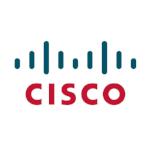(301) 220 2802
The New CCNP ENCOR Certification - A hands-on training course to prepare you for the CCNP exam and the real world.

Our Cisco CCNP ENCOR training class will teach you both the technical skills you need to pass this important networking certification and give you valuable, hands-on experience working with real Cisco hardware in a live environment. Many schools teach Cisco classes solely using PowerPoint presentations and virtual simulations whereas we believe that giving you an interactive experience will build your confidence for real-world situations.
The ENCOR (Enterprise Network Core Technologies) exam certification is the basic component of the CCNP Enterprise technology track. The certification proves your ability to handle professional-level roles in the enterprise networking technologies arena. Cisco has added automation and programmability to this CCNP certification.
In order to gain CCNP Enterprise certification, you must pass this exam and one of its associated specialization exams. TrainACE is currently offering classes in the ENARSI (Enterprise Advanced Routing and Services) specialization.
The ENCOR exam tests students' skills and knowledge in setting up core enterprise network technologies such as dual-stack (IPv4 and IPv6) architecture, network assurance, virtualization, infrastructure, security, and automation.
Our Cisco instructors have industry experience and a minimum of the CCNP certification – and frequently will have CCIE as well as accreditation from EC-Council, CompTIA, and other vendors.
TrainACE offers tailored corporate CCNP classes including on-site training at your facility.
Top tip! If you are looking to take your full CCNP Enterprise certification in one go, and save on the training costs, take a look at our CCNP Enterprise (ENCOR + ENARSI) Combo training.
Got Questions?
For more information about your specific needs, call us at (301) 220 2802 or complete the form below:
Jump To:
Class Schedule
-
Live-Online Only
10/27/25 - 10/31/25 GTR
Mon-Fri (10am-6pm)
-
Live-Online Only
11/17/25 - 11/21/25
Mon-Fri (10am-6pm)
-
Live-Online Only
12/15/25 - 12/19/25
Mon-Fri (10am-6pm)
-
Live-Online Only
01/26/26 - 01/30/26
Mon-Fri (10am-6pm)
-
Live-Online Only
02/23/26 - 02/27/26
Mon-Fri (10am-6pm)
-
Live-Online Only
03/23/26 - 03/27/26
Mon-Fri (10am-6pm)
Get your CCNP ENCOR - Cisco Certified Network Professional Training & Certification training in our convenient IT training centers in Maryland or Virginia.
Why Take CCNP ENCOR Training in Metro DC?
With Cisco equipment accounting for over 70% of the world's computer networks, if you intend to work in an IT support or IT systems role you are sure to encounter their routers and switches at some point in your career. Also, given the vast adoption of Cisco systems, you can count on there being a wide range of job opportunities.
Cisco certifications are among the most respected in the IT world and professionals with them can command high salaries and a wide variety of interesting roles. Getting your CCNP certification will take you a long way.
TrainACE Cisco CCNP ENCOR classes include expert instructor-led training using live routers and switches. This ensures that not only do you have the knowledge to pass the test but you have the confidence to work with Cisco equipment in real-world situations.
At the end of the training, you will have the knowledge and skills needed to install, operate and troubleshoot enterprise wired and wireless networks. We'll also teach you how to use solutions like SD-WAN and SD_Access to put in place security principles within an enterprise network and how to overlay network design.
What you need to know before taking CCNP ENCOR training
CCNP ENCOR does not have any formal prerequisites but we recommend that candidates have a good understanding of networking and other exam topics before starting this training. Typically candidates have three to five years of experience working with enterprise networking solutions.
Exam and Certification Requirements:
Required Exam 350-401 ENCOR lasting 120 minutes
Who needs CCNP ENCOR Certification in Washington DC?
TrainACE's CCNP classes are ideal for people in or preparing for job roles including:
- - Mid-level network engineers
- - Network administrators
- - Network support technicians
- - Help desk technicians
How Long are the Cisco CCNP ENCOR Classes?
TrainACE’s CCNP ENCOR certification boot camp includes 40 hours of instructor-led training. You can choose from weekday, evening or weekend classes to suit your schedule. We pack a lot into every class, covering all the essentials, and more, to prepare you for the test. We have many students come to us who have tried online or self-study for these certifications because our classes were a much better way for them to keep on track and to cover all the necessary topics in detail enough to pass the exam.
How Hard are CCNP ENCOR Classes?
The Cisco CCNP ENCORE training class run by TrainACE has an intermediate to mid-level of difficulty. It won’t be too difficult for candidates with three to five years of experience in networking. This class builds on experience and skills learned and tested in the foundational CCNA certification.
Skills and Concepts:
What you will learn in our Cisco CCNP ENCOR training
1.0 Architecture
- - Explain the different design principles used in an enterprise network
- - Enterprise network design such as Tier 2, Tier 3, and Fabric Capacity planning
- - High availability techniques such as redundancy, FHRP, and SSO
- - Analyze the design principles of a WLAN deployment
- - Wireless deployment models (centralized, distributed, controller-less, controller-based, cloud, remote branch)
- - Location services in a WLAN design
- - Differentiate between on-premises and cloud infrastructure deployments
- - Explain the working principles of the Cisco SD-WAN solution
- - SD-WAN control and data planes elements
- - Traditional WAN and SD-WAN solutions
- - Explain the working principles of the Cisco SD-Access solution
- - SD-Access control and data planes elements
- - Traditional campus interoperating with SD-Access
- - Describe concepts of wired and wireless QoS
- - QoS components
- - QoS policy
- - Differentiate hardware and software switching mechanisms
- - Process and CEF
- - MAC address table and TCAM
- - FIB vs. RIB 2019 Cisco Systems, Inc. This document is Cisco Public.
2.0 Virtualization
- - Describe device virtualization technologies
- - Hypervisor type 1 and 2
- - Virtual machine
- - Virtual switching
- - Configure and verify data path virtualization technologies
- - VRF
- - GRE and IPsec tunneling
- - Describe network virtualization concepts
- - LISP
- - VXLAN
3.0 Infrastructure
- - Layer 2
- - Troubleshoot static and dynamic 802.1q trunking protocols
- - Troubleshoot static and dynamic EtherChannels
- - Configure and verify common Spanning Tree Protocols (RSTP and MST)
- - Layer 3
- - Compare routing concepts of EIGRP and OSPF (advanced distance vector vs. linked state, load balancing, path selection, path operations, metrics)
- - Configure and verify simple OSPF environments, including multiple normal areas, summarization, and filtering (neighbor adjacency, point-to-point, and broadcast network types, and passive-interface)
- - Configure and verify eBGP between directly connected neighbors (best path selection algorithm and neighbor relationships)
- - Wireless
- - Describe Layer 1 concepts, such as RF power, RSSI, SNR, interference noise, band and channels, and wireless client devices capabilities
- - Describe AP modes and antenna types
- - Describe access point discovery and join process (discovery algorithms, WLC selection process)
- - Describe the main principles and use cases for Layer 2 and Layer 3 roaming
- - Troubleshoot WLAN configuration and wireless client connectivity issues
- - IP Services
- - Describe Network Time Protocol (NTP)
- - Configure and verify NAT/PAT
- - Configure first hop redundancy protocols, such as HSRP and VRRP
- - Describe multicast protocols, such as PIM and IGMP v2/v3
4.0 Network Assurance
- - Diagnose network problems using tools such as debugs, conditional debugs, trace route,ping, SNMP, and syslog
- - Configure and verify device monitoring using syslog for remote logging 2019 Cisco Systems, Inc. This document is Cisco Public.
- - Configure and verify NetFlow and Flexible NetFlow
- - Configure and verify SPAN/RSPAN/ERSPAN
- - Configure and verify IPSLA
- - Describe Cisco DNA Center workflows to apply network configuration, monitoring, and management
- - Configure and verify NETCONF and RESTCONF
5.0 Security
- - Configure and verify device access control
- - Lines and password protection
- - Authentication and authorization using AAA
- - Configure and verify infrastructure security features
- - ACLs
- - CoPP
- - Describe REST API security
- - Configure and verify wireless security features
- - EAP
- - WebAuth
- - PSK
- - Describe the components of network security design
- - Threat defense
- - Endpoint security
- - Next-generation firewall
- - TrustSec, MACsec
- - Network access control with 802.1X, MAB, and WebAuth
6.0 Automation
- - Interpret basic Python components and scripts
- - Construct valid JSON encoded file
- - Describe the high-level principles and benefits of a data modeling language, such as YANG
- - Describe APIs for Cisco DNA Center and vManage
- - Interpret REST API response codes and results in payload using Cisco DNA Center and RESTCONF
- - Construct EEM applet to automate configuration, troubleshooting, or data collection
- - Compare agent vs. agentless orchestration tools, such as Chef, Puppet, Ansible, and SaltStack


